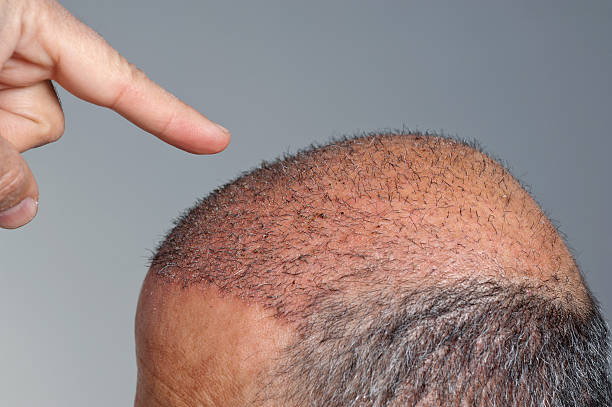Fermented Skincare: The Next Frontier in Natural Beauty
In the ever-evolving world of beauty and skincare, a new trend is quietly bubbling up from ancient practices and modern science. Fermented skincare, a revolutionary approach to nourishing and rejuvenating the skin, is gaining traction among beauty enthusiasts and dermatologists alike. This innovative technique harnesses the power of beneficial bacteria to create potent, bioavailable ingredients that promise to transform our skincare routines. As consumers increasingly seek natural, effective solutions for their complexion concerns, fermented skincare stands poised to redefine the boundaries of what we consider possible in the realm of natural beauty.

In many Asian cultures, particularly in Korea and Japan, fermented ingredients have been used in beauty rituals for centuries. The geisha of Japan, for instance, were known to use sake lees, a byproduct of rice wine fermentation, to brighten and soften their skin. This traditional practice laid the groundwork for the modern fermented skincare movement.
The scientific community began to take notice of the potential benefits of fermented ingredients for skin health in the early 2000s. Researchers discovered that the fermentation process could break down complex molecules into smaller, more easily absorbed compounds, potentially enhancing the efficacy of skincare products.
The Science Behind Fermentation in Skincare
Fermentation is a metabolic process in which microorganisms, such as bacteria or yeast, break down organic compounds. In the context of skincare, this process can transform raw ingredients into more potent and bioavailable forms, offering several benefits for the skin.
During fermentation, enzymes produced by microorganisms break down large molecules into smaller ones. This process can increase the concentration of beneficial compounds, such as antioxidants, vitamins, and amino acids. Additionally, fermentation can create new bioactive compounds that weren’t present in the original ingredients.
One of the key advantages of fermented skincare ingredients is their enhanced ability to penetrate the skin barrier. The smaller molecular size of fermented ingredients allows them to be more readily absorbed, potentially increasing their effectiveness. This improved bioavailability means that even a small amount of a fermented ingredient can have a significant impact on skin health.
Benefits of Fermented Skincare Products
Fermented skincare products offer a range of potential benefits that make them attractive to consumers seeking natural, effective solutions for their skin concerns.
-
Enhanced nutrient absorption: The breakdown of complex molecules during fermentation can make nutrients more bioavailable, allowing the skin to absorb and utilize them more effectively.
-
Increased antioxidant activity: Some studies suggest that fermentation can enhance the antioxidant properties of certain ingredients, providing better protection against free radical damage and premature aging.
-
Gentle exfoliation: The natural acids produced during fermentation, such as lactic acid, can provide mild exfoliation, promoting cell turnover and revealing brighter, smoother skin.
-
Microbiome support: Fermented ingredients may help support a healthy skin microbiome, the delicate ecosystem of microorganisms that play a crucial role in skin health and barrier function.
-
pH balance: Many fermented skincare products have a slightly acidic pH, which can help maintain the skin’s natural protective barrier.
Popular Fermented Ingredients in Skincare
As the fermented skincare trend gains momentum, several ingredients have emerged as frontrunners in this innovative category:
-
Fermented tea extracts: Green tea, black tea, and other botanical teas are fermented to create potent extracts rich in antioxidants and skin-soothing compounds.
-
Fermented rice water: A staple in Asian beauty rituals, fermented rice water is believed to brighten and soften the skin while providing gentle exfoliation.
-
Galactomyces ferment filtrate: This yeast extract, a byproduct of sake production, is rich in vitamins, minerals, and amino acids that can nourish and revitalize the skin.
-
Lactobacillus ferment: This probiotic ingredient is thought to support the skin’s natural barrier function and promote a healthy microbiome.
-
Fermented honey: Known for its antimicrobial properties, fermented honey can help soothe and protect the skin while providing gentle hydration.
Incorporating Fermented Skincare into Your Routine
For those interested in exploring the benefits of fermented skincare, there are several ways to incorporate these innovative products into an existing skincare routine:
-
Start with a fermented essence: These lightweight, fast-absorbing products are often the first step in a skincare routine after cleansing. They can help prepare the skin for subsequent products while delivering a concentrated dose of fermented ingredients.
-
Try a fermented serum: Serums containing fermented ingredients can target specific skin concerns, such as fine lines, uneven texture, or dullness.
-
Experiment with fermented sheet masks: For an intensive treatment, consider using a sheet mask infused with fermented ingredients. This can provide a boost of hydration and nourishment to the skin.
-
Look for multi-tasking products: Some brands offer moisturizers or all-in-one products that combine multiple fermented ingredients, simplifying the skincare routine while still delivering the benefits of fermentation.
When introducing fermented skincare products, it’s important to start slowly and patch-test new products to ensure compatibility with your skin. As with any skincare routine, consistency is key to seeing results.
The Future of Fermented Skincare
As research into the benefits of fermented ingredients continues, the future of fermented skincare looks promising. Brands are increasingly investing in this innovative category, developing new products and formulations that harness the power of fermentation.
One area of particular interest is the potential for fermented ingredients to address specific skin concerns, such as acne, hyperpigmentation, and signs of aging. Researchers are exploring how different fermentation processes and bacterial strains can yield ingredients with targeted benefits for various skin types and conditions.
Additionally, the sustainability aspect of fermented skincare is likely to become more prominent. Fermentation can be an eco-friendly way to create potent skincare ingredients, often requiring less energy and resources than traditional manufacturing processes.
As consumers become more educated about the potential benefits of fermented skincare, we can expect to see this trend continue to grow and evolve. From niche Korean beauty brands to mainstream global cosmetics companies, fermented skincare is poised to become a significant player in the natural beauty movement, offering a unique blend of traditional wisdom and cutting-edge science for those seeking effective, gentle skincare solutions.




